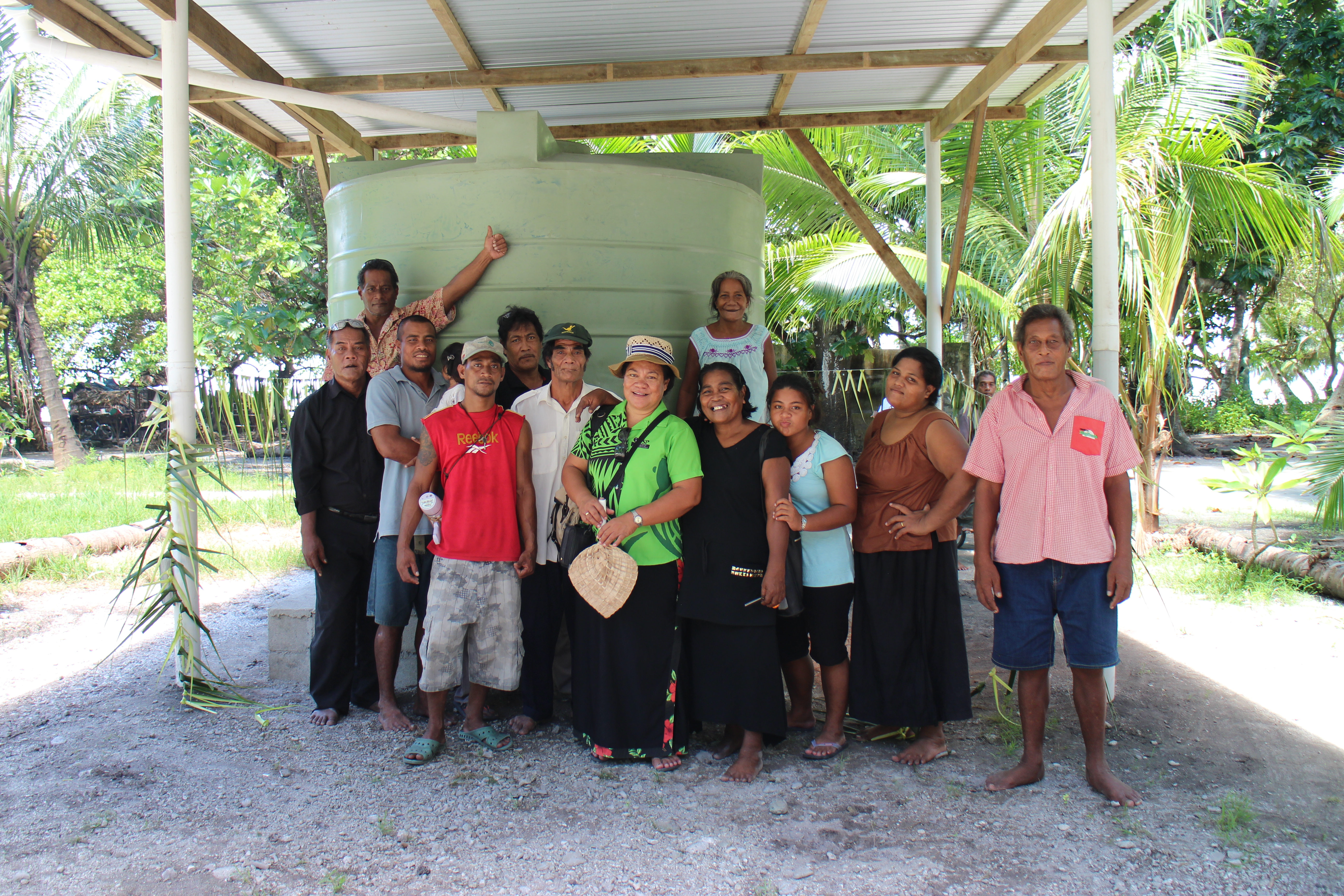The second class of Fulbright-National Geographic Storytellers—selected from hundreds of applicants—shared insights on the challenges and the rewards of creating compelling stories from around the world, at the National Geographic Museum on Thursday, July 14, 2016. Janice Cantieri received a grant from Fulbright to continue her reporting on the Kiribati community, a project she began with Pulitzer Center support as a 2015 Washington University student fellow.
Cantieri was joined by four other 2015-2016 Fulbright-National Geographic fellows who covered a wide range of global topics from harrowing stories of Syrian diaspora in Jordan, Turkey and Sweden to the challenges for those still affected by historic nuclear disasters in Japan; from cattle ranching in Russia and Kazakhstan to land rights issues in Jakarta, Indonesia. View their presentations, here.
Cantieri explored the ways people in Kiribati are adapting to the challenges of climate change on their islands. She shared the story of her four-day boat journey to the Banaba, a phosphate island in Kiribati, from which many were displaced to Rabi Island in Fiji by the British Phosphate Commission in 1945. While these people have been separated from their ancestral homeland for the past 70 years, they use dance and oral storytelling to maintain their culture and tight-knit community.
Keith Jenkins, general manager for National Geographic Digital, prompted the fellows to each offer their experiences related to the Fulbright mission of bringing mutual understanding between citizens of the U.S. and citizens of other countries. "How did that happen for you, and how did this experience help you personally in your understanding?" he asked.
"For me it was definitely a personal journey. For my own understanding, I went in with a lot of preconceived notions that their island is sinking—they should want to leave their home. I realized that that's not how it is. These people are not victims. They do not want to be perceived as victims. They also are so well connected to their extended family and community and that's really what their country is. . . . Something that is so special about these islands in the Pacific is that [welcoming people] is normal. That's just the way they are, extremely welcoming and trusting and friendly. We can all learn from that. We should be more of a community and less focused on where we are going and be more concerned about the community around us," Cantieri said.
The Fulbright-National Geographic Digital Storytelling Fellowship was launched in 2013 as a component of the Fulbright U.S. Student Program. It provides opportunities for U.S. citizens to participate in an academic year of overseas travel and digital storytelling in up to three countries on a globally significant theme. This fellowship is made possible through a partnership between the U.S. Department of State and the National Geographic Society.








